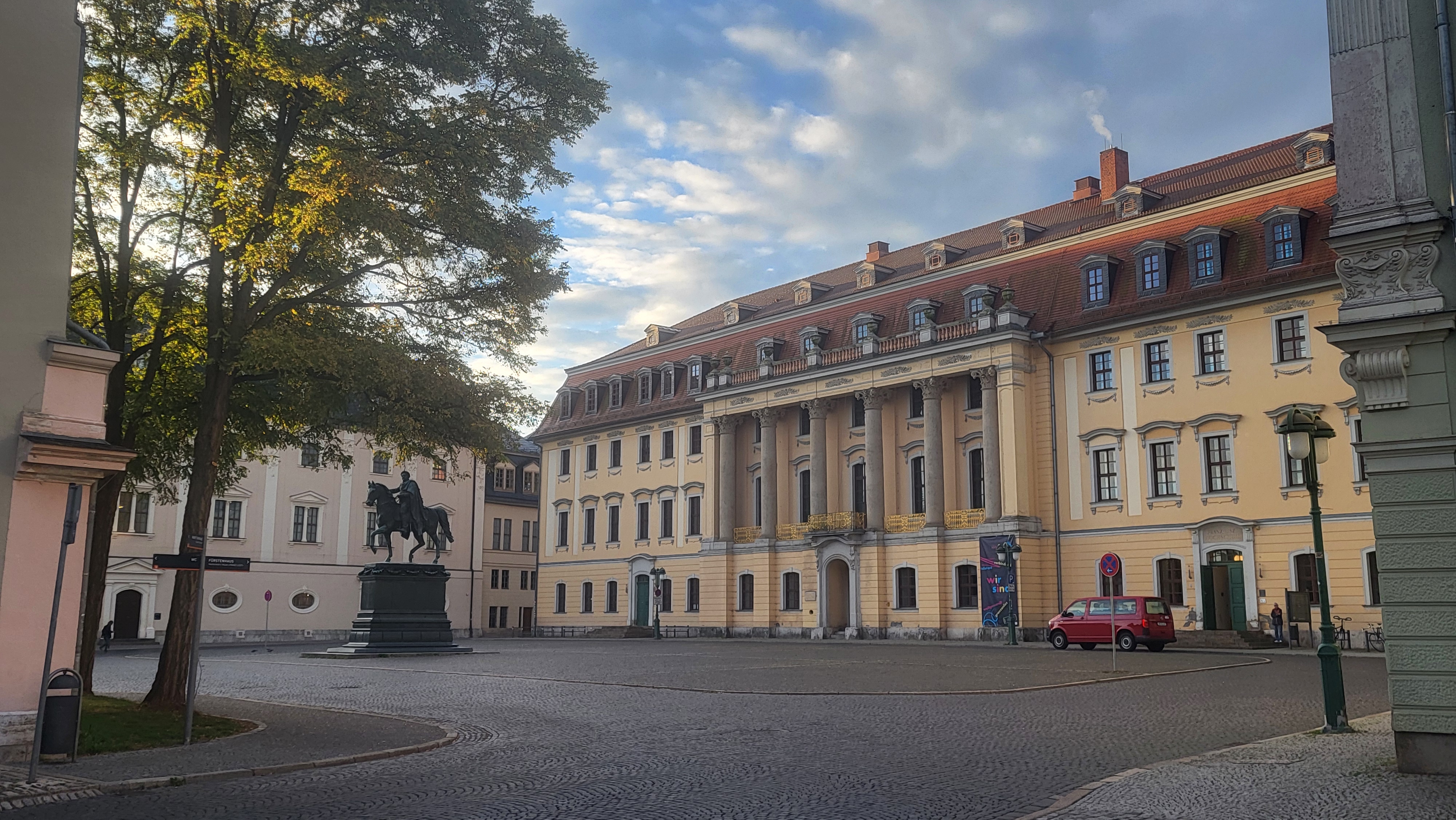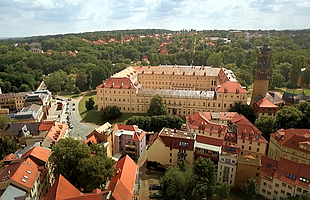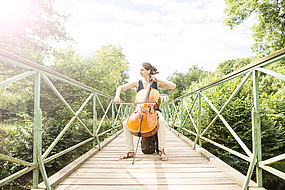The Cultural City of Weimar
Studying in Weimar means gaining a general cultural education in addition to the subject-specific curriculum – there is a reason the town carries the title “Europe’s cultural capital”. It begins with the intact urban landscape which has grown over centuries and is rich in architectural monuments from the Middle Ages, Renaissance, and the Baroque through to Art Nouveau and Bauhaus.
Weimar lives and breathes German and European cultural history. The house of Wettin, an art-loving dynasty, created a large-scale scenery of parks and castles over several hundred years in and around Weimar. Above all, the house of Wettin gathered the great minds of art and music from throughout Europe in Weimar.
Every corner holds plaques and monuments proclaiming key words: Martin Luther preached here; Cranach painted there; here lived Johann Sebastian Bach; Herder mused over the equality of world-cultures here; Schiller wrote his dramas three streets away; Franz Liszt taught piano here; Richard Strauss debuted there; up here Nietzsche ended the twilight of his life; at that window stood the easel at which Max Liebermann invented his revolutionary Realism; behind that garden fence lies the house of the High Poplars, house ‘Hohe Pappeln’, where Henry van de Velde brought the message of Art Nouveau to Germany; Walter Gropius came up with the idea for Bauhaus there; and the genius of Goethe is everywhere.
To go for a walk in Weimar means to follow the tracks of Germany’s history. The country’s darkest chapter is also unavoidable: On the outskirts of the town lies Buchenwald, where German tyranny incarcerated and tortured people from all over Europe.
Weimar has all the advantages of a long tradition of being a seat of nobility and a modern university town. The National Theatre of Germany offers a full programme of opera and drama, and is also open for daring experiments, particularly during the annual arts festival. The state orchestra in Weimar has an ambitious concert programme. In addition to this, there are numerous large cultural events from all areas of the arts throughout Thuringia.
The Bauhaus University, which is organisationally connected to the University of Music FRANZ LISZT, is within walking distance. This offers diverse impulses for interdisciplinary thinking and working for interested students.
Weimar’s libraries are treasure troves for all areas of knowledge where creative artists are warmly supported in their reading, research, and work.
Those who wish to study outside of their speciality, both intensively and broadly, will find Weimar to be the ideal setting for their most important years of education. People from all over the world can encounter the greatest ideas from the past, present, and future here. Weimar is good for everyone who takes their job and calling seriously and who understands music to be part of a global culture.
→ Back to the mission statement


